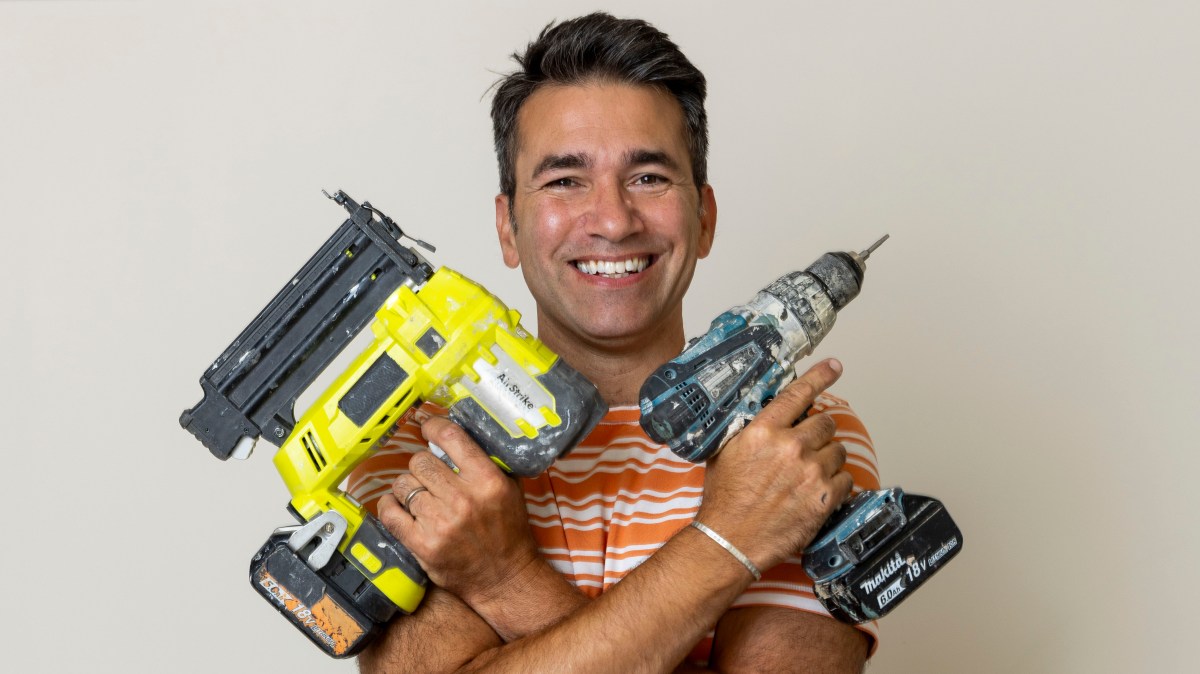At just 23 years of age, Sarah Power received a diagnosis that would define her life: she tested positive for Huntington’s Disease, a hereditary neurodegenerative condition. Now 41, Sarah reflects on the profound impact this revelation has had on her life and her family’s journey with the disease.
A Life-Altering Diagnosis
Seated in a hospital room with her mother, Sarah awaited the results of her genetic test. “It was a really harrowing moment,” she recalls. The diagnosis confirmed her fears—she carried the gene mutation for Huntington’s Disease, which could drastically reduce her life expectancy. “I fell to pieces. But it wasn’t just the pain I was feeling that hurt; it was knowing how my mum felt,” she shared.
The news, although devastating, was not entirely unexpected. Sarah’s family had a history with the disease; both her father and grandmother battled Huntington’s. “I remember sitting in our living room when I was five, being told by someone from the Huntington’s Disease Association that my grandma had this disease,” she said. The hereditary aspect of the condition loomed large over her childhood.
Sarah’s grandmother passed away eight years later due to Huntington’s, a loss that reinforced the grim reality of the disease. Her father, however, denied his risk, refusing to acknowledge the possibility that he too might carry the gene. “He just wouldn’t go there as a proud man,” Sarah recalled. “I think it was his way of coping.”
Living with Uncertainty
As a teenager, Sarah was eager to know her genetic fate. Soon after turning 18, she was invited to a genetic counseling appointment. “They were just telling me without telling me,” she remarked, realizing the implications of her family history.
Following two years of counseling and tests, the confirmation came when she was 23. “I cried more than I thought possible,” Sarah said, describing the overwhelming grief of having to inform friends and family about her diagnosis.
In the wake of her diagnosis, Sarah’s brother initially declined to be tested but later discovered he did not carry the gene mutation. “I suspect he found the negative test result almost as hard as my positive test,” she said. Seeking to escape the emotional toll, Sarah embarked on a backpacking journey across several countries, making cherished memories along the way.
Despite her efforts to enjoy life, the reality of her condition weighed heavily on her. The death of her father from Huntington’s in 2017 marked a profound turning point. “It was a relief as well,” she noted, acknowledging the suffering he endured. “It’s so cruel.”
Family and Future
When Sarah married, she and her husband decided to undergo IVF to reduce the risk of passing on the gene mutation. After losing two pregnancies, she successfully carried her first daughter to term. “We had our happy little family and thought we were done,” she recalled. Surprisingly, Sarah became pregnant again in 2021. “I just couldn’t bear to take her life away,” she stated, reflecting on the potential implications of genetic testing for her second child.
Now a stay-at-home mother of two daughters, Sarah grapples with her fears for their future. While her first daughter tested negative for the gene mutation, the possibility looms for her second child. “Normally, onset is between 30 and 50,” she explained. “I am pre-symptomatic, but it feels like I’m a ticking time bomb.”
With early symptoms of Huntington’s often including personality changes and coordination issues, Sarah worries about every minor slip or mistake, questioning whether they could signal the onset of her condition. “I just want to stay fit and healthy long enough for a treatment to help me,” she expressed.
New Hope on the Horizon
In September 2023, Sarah received an unexpected glimmer of hope when the Huntington’s Disease Association announced a new treatment showing promise in slowing the disease’s progression. “I had to read the email several times—I couldn’t sleep that night,” she said, excitement evident in her voice. “It’s the breakthrough we’ve all been hoping and praying for.”
Cath Stanley BEM, Chief Executive of the Huntington’s Disease Association, emphasized the significance of this development: “Around 8,000 people in the UK are living with Huntington’s disease, with another 32,000 at risk.” He noted that the disease results from a faulty gene affecting movement, cognition, and behavior, typically manifesting in individuals during their 30s or 40s.
While the new treatment could potentially slow the condition’s progression by up to 75%, full trial results are pending, and approval will be sought in the US before European and UK regulatory submissions. “This is a huge step forward,” Stanley added, though he cautioned that the procedure is currently a significant operation lasting over 12 hours and may be effective only for certain stages of the disease.
For Sarah, this advancement brings renewed hope. “I never dreamed that a treatment would come along. Now, I might be able to grow into an old lady and enjoy all the things my mum has,” she said, her voice filled with optimism. As she navigates her uncertain future, Sarah remains committed to living fully in the present, cherishing every moment with her family.







